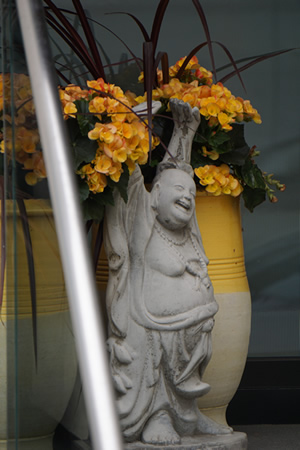Growing up on a farm, the oldest child in the family, I was driving a tractor when I was so young I could barely see over the steering wheel. Chopping wood, feeding chickens, pushing the lawnmower, hauling hay—girls did any chores they were physically capable of doing. It was an all hands on deck environment. Lots of work to be done; few people to do it. When I wasn’t in school or working, I played in the woods and fields, climbed trees, hunted for arrowheads, and fished and swam in the pond, by myself or with neighbor kids, until I got hungry and went home. In my first 10 years, agency and independence were solidly engrained.
My favorite reading, in elementary school, was biographies. Mom would take me to the public library and I would bring home a stack of books, lay in the floor and soak in the lives of people doing extraordinary things, some overcoming extreme obstacles. All kinds of people. Colors. Genders. Disabilities. The message I got was, people do incredible things. Then, as I entered my second decade, along came the Mary Tyler Moore Show, Maude, and Helen Reddy singing “I Am Woman.”
These shows were groundbreaking for featuring independent women and the song became the anthem of the 1960s and 70s feminist movement. But I didn’t know that then. Without historical or political context, the women sitcom characters and music reinforced the conclusion I’d reached from the biographies. Women, like other people, can do professional work, live alone and say what they think.
In this context, I took my few childhood gender-biased battles as isolated individuals’ problems, not global expectations. In the fourth grade, there were enough boys in my class to field a softball team but most of them were not athletic. I was the only athletic girl. So I wanted to play on the boys’ softball team, making the argument that it was the only way our school could possibly win. When my female teacher refused to let me, I took the field anyway on game day.
She chased me inside the school building, hitting me in the back with her high-heeled shoe. Then, when the St. Louis Cardinals made the World Series, she brought a TV to school and let all the boys out of class to watch the games. Many of the boys didn’t care about sports. I did, but she wouldn’t let me watch. So I folded my arms at my desk and refused to do any school work. I didn’t know she was enforcing society’s gender rules. I just thought she was an ignorant, mean person who liked the boys better than me.
As an adult, moving to other parts of the U.S. and entering the professional world, I began to experience some jarring. As often happens when there’s something I need to understand, the women’s rules question from years earlier re-appeared. But where do I find these rules, I wondered. The answer: look to the broader culture. That’s where you’ll find the rule book. So tuning my radar to magazines, clothing, politics and my own experiences in different settings, I found some of the rules and realized some were finding me. Here’s what I learned, and how I measure up.
Based on women’s magazines, I’m supposed to be interested in:
✔ Health Not
✔ Beauty Not
✔ Relationships Only the one I’m in.
✔ Food Love to eat. Not read about it.
✔ Fashion Some
✔ Celebrity Not
Of all the things there are to learn and think about, why would these topics pervade women’s reading material? I typically see these magazines in beauty shops and grocery store checkout lines. My mother owned a beauty shop, so these magazines must have been around our house when I was growing up. Yet I was so unconcerned with these parts of life that it took a graduate course in gender stratification to realize these topics reflect women’s traditional domain—home and family. And celebrity and gossip reflect women’s interest in people’s personal lives. Still? It’s 2016. I am an alien.
Based on clothing for adult females, I’m supposed to be:
Size 4-16
or maybe up to size 18 depending on the store or brand, or down to size 12W. Does the W mean woman, or wide? Based on an internet search where others asked this question—we’re not sure. Some say woman. But that makes no sense, since men’s and women’s clothes typically aren’t on the same rack or even in the same section of the store. Anyway, all sizes above this range are considered “plus.” I’m a plus woman. The plus size clothing is usually separate from the regular sizes, often on another floor. In one store, it was in the basement, next to the carpets and furniture. Can’t ignore the symbolism of that placement.
I’m inclined to take this “plus” moniker as meaning I’m a super woman or more than a woman. But that’s not the feel, when the salesperson silently points me to the basement. Why? The reality is there’s tremendous variation in women’s bodies. So why be accepting of such a limited range? Clothes sizing and labeling too is all over the map. Some adult females’ sizes are referred to as Junior or Misses. Does that make these females not yet women? Perhaps many of us are not regular women.
Based on women’s voices, I’m supposed to:
Speak softly, obliquely, in a high pitch.
But I’m loud, direct and tenor, or to use the gendered categories of classical music, contralto. Wikipedia says a contralto female voice is rare, maybe one percent of the female population. It’s in about the same range as the male countertenor. So, the reality is, some women’s and men’s voices overlap; they’re indistinguishable. Why then, must we assume people’s gender based on their voice? On the phone, people who don’t know me call me sir. I’ve been hung up on, told to go into a bank to get my business taken care of, and transferred to the fraud unit. Often, even after I’ve corrected the person’s mistaken gender attribution, if the conversation continues long enough, they revert to calling me sir. What’s up with that? Why does anyone even need to say yes sir, no sir, or thank you sir? Why isn’t yes, no, and thank you sufficient? Why do we need to genderize such speech?
Direct. If I was running for political office and asked about my hair, makeup, clothing, or spouse’s role, I’d respond Bernie Sanders’ style: “Do you have a serious question to ask?” Having received feedback, a.k.a. negative reinforcement, I’ve tried to be less direct, but then I find it annoys some men, makes me lose track of the point, allows others to miss the point, and makes my stomach turn at my own rambling and muddledness.
Loud. I enjoy wit and humor and laugh full-bodied when something strikes me as funny. When it’s just amusing, I only smile. When I’m impassioned, when I’m talking about something I strongly care about, my voice and bearing rise. Combine that with my plus size and contralto, and it equals, for some people—intimidating. Throttle back, was the message from a male supervisor. I’m to notice the space I take up, and take up less of it. “You could do something about your size,” was the advice of a petite female supervisor, conveyed with an undertone of, if you were only willing to. Hhmm, then I guess I should get bigger.
At work, I’m supposed to:
Bring the snacks, take the notes, and fetch anyone who hasn’t shown up on time at the conference room. I don’t. I’m supposed to allow men to restate my ideas as their own and not call them on it. Sometimes, I do, just to get along.
But snacks? We’re all capable of going shopping. No one has to make food from scratch anymore, so why would this task still fall to women? Taking notes? Often, I would prefer to take notes, because I like them short and concise, and it gives some power when you craft the record of the meeting—but that’s not the way it’s perceived. If men take notes, they get kudos for their egalitarianism; women get perceptually demoted. Fetching someone who’s late? Start without them, and don’t recap. Next time, they’ll arrive before the starting gun. It’s risky, as a woman, to set such boundaries and hold to professional expectations, especially when the colleagues who are late are men. Women are supposed to coddle. If we don’t, you know what we’re called.
Now that I’ve read the women’s rule book, it’s clear how misaligned my interests, thinking and behavior are with the expectations for American women. But why, I wondered, was there such a contradiction between my upbringing and societal expectations. At least a partial answer came, serendipitously, when my mother bought a new car. She called me, excited about her red Camaro. I returned the excitement, went to see it and went for a ride. Then she repeated her story the following week, and the next, until finally I said, with a bit more exasperation than was tolerable on the other end of the phone, “I know, mom, you told me! I saw it.”
She exploded. “You don’t understand!”
“Understand what?”
“This is the first car I’ve bought on MY own!! In MY own name!! With MY own money!!”
I was shocked. My strong-willed, business-owning mother, who was then nearing 50 years old, had always driven a car (my family had at least two) and earned money. I had no idea this all existed only because my dad allowed it. That the U.S. financial systems at the time would only lend money to men.
From my child’s vantage point, my mom was strong and independent, just like my dad. Neither of them ever told me I couldn’t do things because I was a girl. My dad taught me to drive the tractor, and before I started to school, I was his constant companion. My mom always told my brother, sister and me, “Be what you are, no matter what people think.”
This incident was such a revelation I started peeling back the surface. When I did, I saw a different world, one with a set of perspectives and experiences I perhaps should have known by the time I was an adult, but didn’t. Neither of my parents was politically active. I never heard them use the word “feminist,” yet that revolution was going on all around. While even today women’s parity is still far short of the goal, the impact of the 1960s and 70s women’s movement was so great that by the time I was living on my own, I could take for granted credit cards and car loans. I just got them when I needed them and could afford it. The fact that, had I been born 15 years earlier, my father, brother or a husband would have had to sign for my financial needs, makes me shudder.
Throughout my life, I’ve not identified much as female. I never doubted I was a girl. My body has the requisite feminine parts. But I thought of myself as human, or androgynous, and reveled in all the variety and contrasts that entails. Even now, if I pictured my version of my identity as a four-slice pie, woman might be one slice, maybe a slice and a half. Yet, regardless of my way of thinking and feeling about my identity, the world identifies me as a woman, and therefore, subject to women’s rules.
It’s this forced identity that chafes me. Women’s interests, women’s clothes, women’s voices and work expectations, what I see when I look at what our culture shows us about women is so narrow. Even when your exterior is granite, over time, with frequency, the feedback works like acid rain, either we chip away parts of ourselves or others do it for us. Some of us elbow the box, squirming and trying for more room, finding our niche within these broad social constraints. But what do we, and the world, lose in the process?
What we see and experience is how we learn. It gives us our framework for interpreting meaning, making sense of the world and our lives. In the world of my dreams, we nourish the diversity that’s in each of us. The complexity that is human. We give our daughters, and our sons, more ways of being in the world, more opportunities to express their innate talent, vision and ideas. And we celebrate and display that richer picture. If that happens, there will be different lessons. Instead of women’s rules and men’s rules, perhaps they, and we, will learn the rules for being human.











